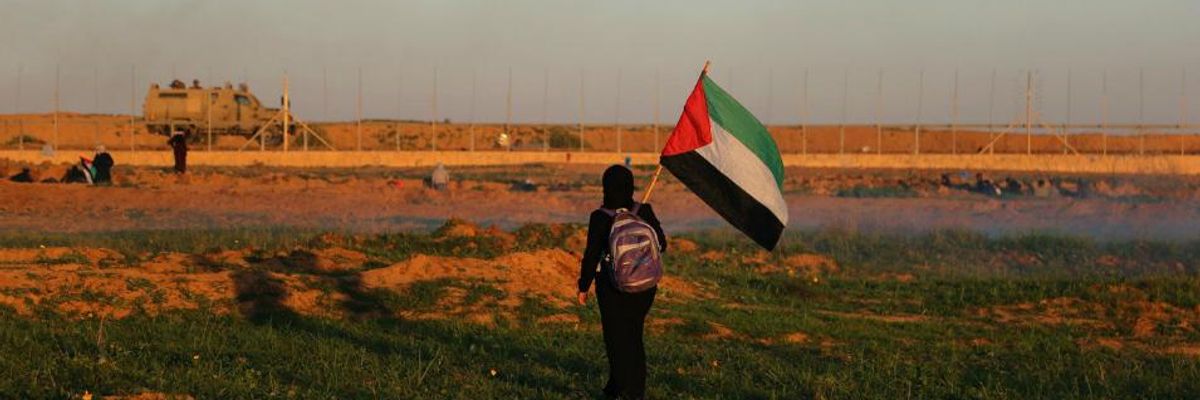At the height of the 2014 war between the Israeli military and Palestinian factions in the Gaza Strip, the New York Times ran an article headlined, "Israel Says That Hamas Uses Civilian Shields, Reviving Debate." It was an apparent reference to the hundreds of Palestinian civilians who had been killed in Israeli attacks by that point in the war. There was no question about who had killed them, yet the language shifted the subject to a "debate" about who was really responsible. A few weeks earlier, after an Israeli airstrike killed several Palestinian soccer fans, the Times ran the absurd title, "Missile at Beachside Gaza Cafe Finds Patrons Poised for World Cup," later amending the headline in the face of widespread disgust expressed on social media.
"The findings demonstrate a persistent bias in coverage of the Israeli-Palestinian issue--one where Israeli narratives are privileged and where, despite the continued entrenchment of the occupation, the very topics germane to Palestinians' day-to-day reality have disappeared."
--Owais Zaheer, study co-author
Headlines matter. As studies have repeatedly shown, when it comes to reaching the general public, the words at the top of the page might be as important, if not more, than the text of articles themselves--to the chagrin of many writers. In the case of the Israel-Palestine conflict, inappropriate, misleading, and biased headlines like those that appeared in the New York Times during 2014 Gaza War have been all too common.
This is the conclusion of a new study titled "50 Years of Occupation" published by 416Labs, a research and data analytics firm based in Canada. The firm analyzed nearly 100,000 news headlines about the conflict in the American press over the past five decades and found that the Israeli point of view was featured much more prominently than the Palestinian one, and that references to Palestinians' experiences of being "refugees" or living under "occupation" have steadily declined.
"The findings demonstrate a persistent bias in coverage of the Israeli-Palestinian issue--one where Israeli narratives are privileged and where, despite the continued entrenchment of the occupation, the very topics germane to Palestinians' day-to-day reality have disappeared," Owais Zaheer, one of the study's authors, told The Intercept. "It calls to attention the need to more critically evaluate the scope of coverage of the Israeli occupation and recognize that readers are getting, at best, a heavily filtered rendering of the issue."
Read the full story here.

